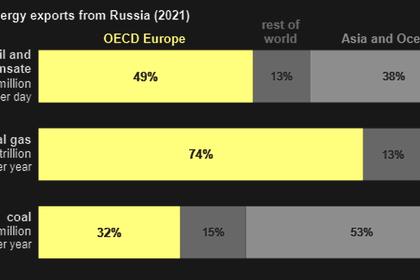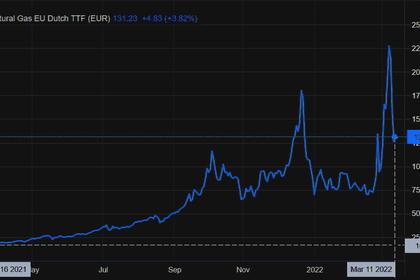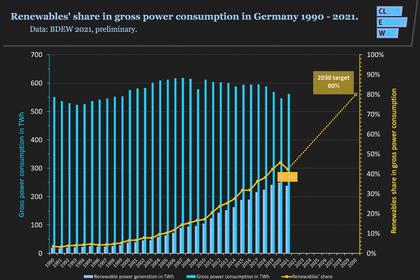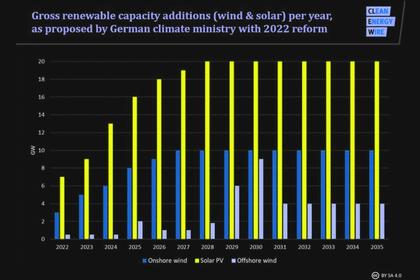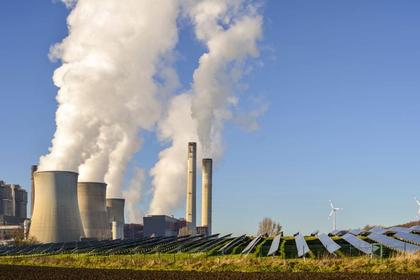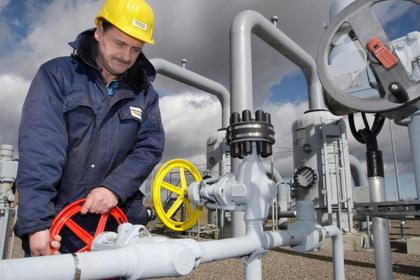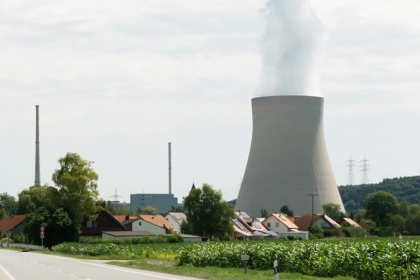
GERMANY'S CARBON EMISSIONS UP
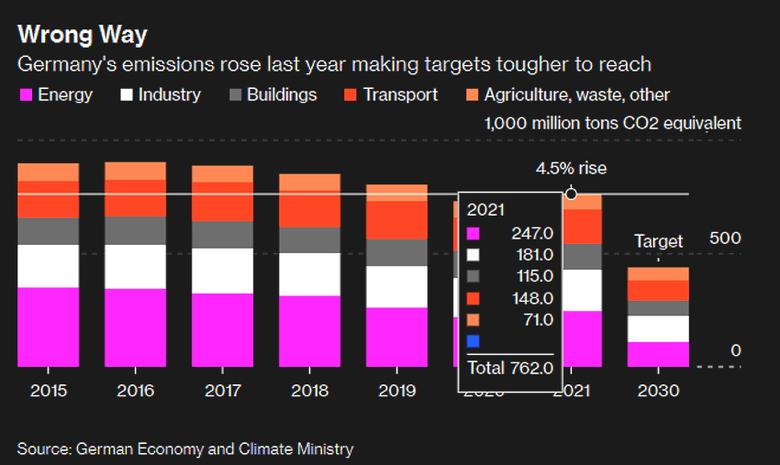
BLOOMBERG - March 15, 2022 - Germany emitted more greenhouse gases last year, putting pressure on the new government to get climate goals back on track.
Europe’s largest economy released the equivalent of about 762 million tons of carbon dioxide in 2021, a 4.5% increase from the previous year, mainly due to higher emissions from the energy sector, the Economy and Climate Ministry said on Tuesday.
Germany has missed emissions targets for two straight years. Last year, Russia capped natural gas supplies to Europe for months just as demand rebounded from pandemic lows, forcing the continent to rely on coal and even fuel oil to keep the lights on. Burning more fossil fuels to generate electricity led to an increase in emissions.
Chancellor Olaf Scholz’s coalition, which includes the Green party as its second-biggest member, has made climate protection a key goal. It has vowed to step up the pace, accelerating a plan to generate almost all the country’s electricity from renewable sources by 2035.
The push for cleaner power has taken on added urgency with Germany seeking to wean itself off Russia gas and coal after the invasion of Ukraine. Meanwhile, the planned shutdown of the country’s last three nuclear reactors is likely to lead to burning more fossil fuels until sufficient wind and solar capacity is installed.
“We can’t have a repeat of the deadlock we’ve seen in the last few years,” Deputy Minister Patrick Graichen said in a statement. “Russia’s war of aggression against Ukraine has also made it dramatically clear just how much security and energy supply are interconnected. We can no longer afford to ignore this.”
Germany’s target is to reduce emissions that cause global warming to 438 million tons in eight years. That means cutting current emissions by 324 million tons -- nearly double the reductions made since 2010.
Of the additional 33 million tons of CO2 last year, some 27 million tons came from the energy sector as demand surged due to the recovery from the coronavirus pandemic. Poor wind conditions meant renewable power fell 7%, while surging gas prices forced suppliers to lean more on coal.
Germany needs to triple the expansion of wind and solar to achieve its goal of getting 80% of its electricity from alternative sources by 2030.
While emissions have fallen 38.7% since 1990, they need to be reduced by 6% a year to reach the country’s 2030 goals. That compares with less than 2% a year on average since 2010, the Economy Ministry said.
Transport emissions were also an issue, with the sector exceeding what’s allowed under a new climate protection law by about 3 million tons due to higher cargo volumes. The government is also expecting Germany’s automakers to do more.
“It must be said that in the past few years and decades the mobility sector has not contributed enough to reduce the dependency on oil,” Economy Minister Robert Habeck, a former co-leader of the Greens, said at an auto industry event Tuesday in Berlin.
-----
Earlier:
